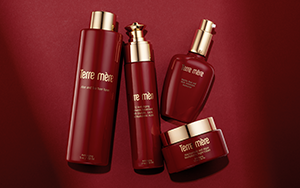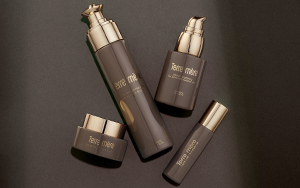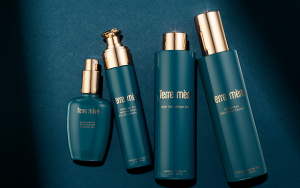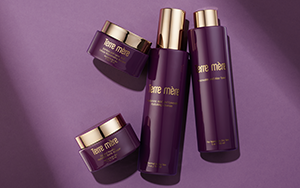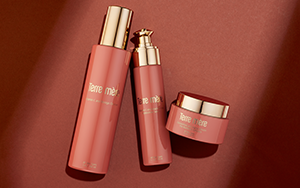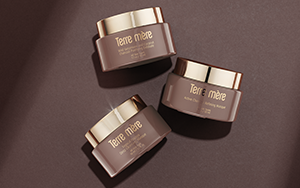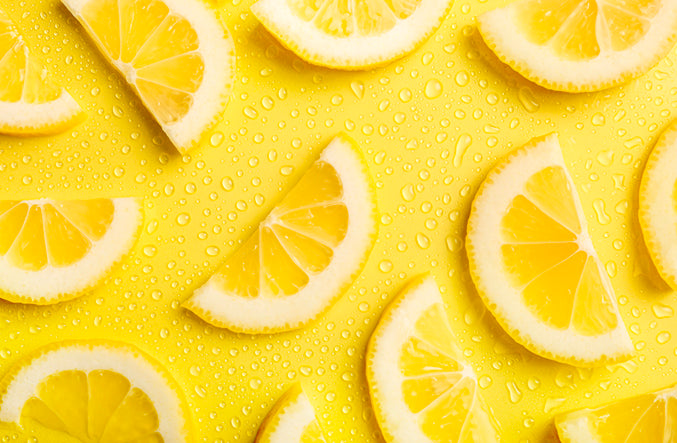
The world of skincare is filled with nourishing ingredients that help protect your skin’s radiance and produce a healthy, supple glow. On the flip side, there are some ingredients that, well, do just the opposite. Though they may be natural, these popular skin remedies actually do more harm than good, and can create adverse effects in people who apply them too often to their skin. Check this list to make sure you’re not putting any of these ingredients on your face:
-
Coconut Oil
Coconut oil exploded onto the skincare scene just a few years ago, with claims that it can cure just about any skin malady running rampant on Twitter. But in the midst of the coconut oil craze, it’s best to tread lightly. Although coconut oil is completely natural, it can actually make the skin on your face take a turn for the worse.
Coconut oil is naturally comedogenic (that’s skincare lingo for pore-blocking). It contains 90% saturated fat, which is super heavy in your skin and sinks right into your pores. That’s especially bad news if you have acne-prone or oily skin to begin with.
That said, coconut oil is completely safe for use on other parts of the body. It’s extremely nourishing and keeps the skin moisturized. It’s also a natural antimicrobial agent, which helps your skin barrier do its job in keeping out pesky bacteria. Just make sure to avoid putting it on your face!
-
Concentrated Apple Cider Vinegar
As part of a skincare formula, apple cider vinegar provides amazing pH balancing properties for oily or blemished skin. Undiluted, however, apple cider vinegar is far too harsh to act as a skincare product. Given its extremely acidic properties, it can cause severe rashes or burns on the skin. What’s more, it can also create severe inflammation or even a cornea burn if it gets in your eyes. That’s why you should never apply apple cider vinegar as a standalone product to your skin — but if you find it as an ingredient in another skincare formula, go right ahead!
-
Lemon Juice
Looking for a little vitamin C? It makes sense that you might turn to lemon juice — after all, citrus is known to supposedly lighten dark spots. This is only true about vitamin C in other skincare formulas, not when it comes directly from lemon juice. Lemon juice is extremely acidic and will act as an irritant on the skin. It can also cause an unsightly rash called phytophotodermatitis, which is caused when the psoralens in lemon juice are exposed to UV light. If your face is in need of some brightening action, try applying a vitamin C serum instead.
-
Toothpaste
Applying toothpaste to zits is one of the oldest skincare tricks in the book. The formula is simple: apply toothpaste on a pimple before bed and — voila! — in the morning it’s dried up and gone. Toothpaste has been recommended for years because it contains baking soda, which supposedly prevents sebum buildup in the skin. It would be great if treating pimples was so simple as just smearing toothpaste all over them, but unfortunately, it’s not!
In fact, applying toothpaste to your face could do you more harm than good. If you’ve ever put toothpaste on a pimple before, you might have noticed the area turn red afterwards. That’s because toothpaste is full of ingredients that will irritate the skin, including baking soda, alcohol, hydrogen peroxide, and menthol. You definitely don’t want those ingredients touching your face, so skip the toothpaste and go for natural antiseptic and anti acne products instead.
-
Baking Soda
Baking soda is a versatile, multipurpose ingredient used in all sorts of applications. Just because it’s a great multitasker, however, doesn’t mean it should be used on the skin! Baking soda is alkaline in nature, which means it could disrupt your skin’s pH balance when topically applied. You want to avoid disturbing your pH balance, because that’s what keeps bacteria and infectious pathogens out of your skin. If the natural pH is disturbed, you might break out. Baking soda can also irritate the skin and dry it out, which encourages an overproduction of sebum — and more breakouts.
-
Very Hot Water
Always wash your face following the Goldilocks rule: not too hot, not too cold, but just right. High-temperature water strips your skin of its natural moisture. When that happens, your skin’s oil glands try to replace it by churning out even more oil. The result? Acne breakouts galore. Keep that temperature right in the middle when washing your face to keep breakouts at bay.
-
Body Lotion
It happens to the best of us: we’re rushing to get ready in the morning, when boom — an empty moisturizer bottle stares back at us from the shelf. In a hurry to get ready and go, we reach for the body lotion instead. Should be all good, right?
Wrong. Don’t be tempted to go for your body lotion if you’ve run out of facial moisturizer. The formula for body lotions is much thicker, meaning it’s more likely to clog your pores. It also may contain fragrances or other ingredients that might cause an allergic reaction on the thinner, more delicate skin on your face.
If you’re really in a pinch and need a moisturizer, check the label first to make sure your lotion is fragrance free and non-comedogenic.

